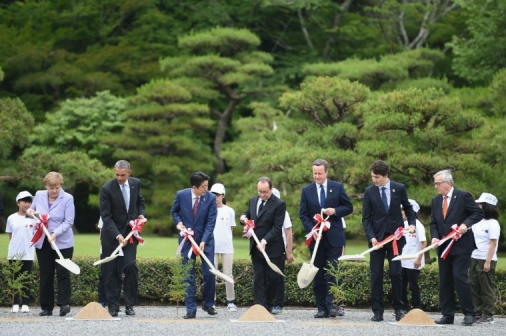×
The Standard e-Paper
Home To Bold Columnists

World leaders kicked off two days of G7 talks in Japan on Thursday, with the creaky global economy taking centre stage and disquiet over China's growing influence looming over proceedings.